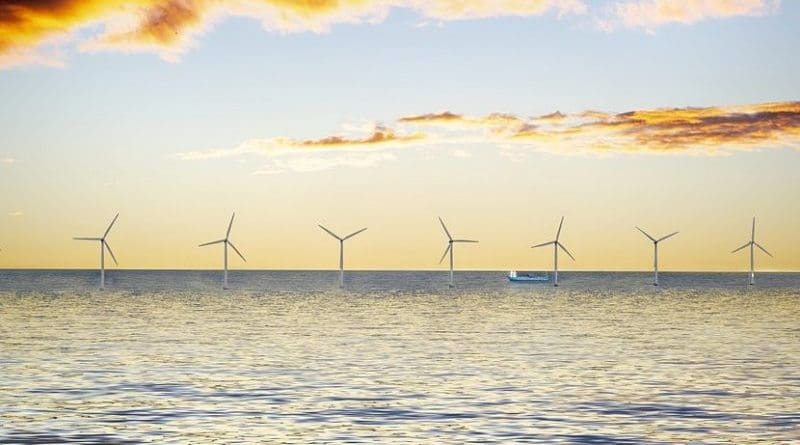Pakistan’s Strategy For A Thriving Blue Economy – OpEd
By Dr. Sahibzada Muhammad Usman
In recent years, the concept of the Blue Economy has gained considerable traction, emerging as a sustainable model of economic development that leverages the vast potential of the world’s oceans and waterways. This model emphasizes not only the economic benefits derived from marine resources but also underscores the importance of conserving and sustainably managing the oceans.
The Blue Economy encompasses a broad range of activities, including but not limited to, sustainable fisheries, aquaculture, maritime transport, tourism, renewable energy, and seabed resource extraction. These sectors hold the promise of fostering economic growth, enhancing livelihoods, and promoting the sustainable use of ocean resources. The global valuation of the Blue Economy stands at an impressive $24 trillion, highlighting the economic magnitude and the pivotal role oceans play in the global economic framework. This valuation offers a glimpse into the untapped potential that the Blue Economy presents for economic development and environmental sustainability.
Pakistan, with its strategic location along the Arabian Sea, is in a prime position to harness the benefits of its maritime resources. The country’s coastline stretches over 1,046 kilometers, offering access to a wealth of marine resources and strategic maritime routes. Despite this, Pakistan’s maritime sector contributes a mere $450 million annually to the national economy, a figure that pales in comparison to the revenues generated by neighboring countries such as India and Bangladesh from their maritime sectors. This disparity underscores the vast untapped potential within Pakistan’s maritime domain and the urgent need for strategic investments and policy reforms to unlock the benefits of the Blue Economy.
The significance of the Blue Economy for Pakistan extends beyond economic metrics. The maritime sector represents a lifeline for the country’s trade, with 95% of its trade volume being transported via sea routes. The development of Gwadar Port, under the ambit of the China-Pakistan Economic Corridor (CPEC), exemplifies the strategic initiatives underway to bolster Pakistan’s maritime trade infrastructure. Gwadar’s operationalization is anticipated to revolutionize trade flows in the region, offering a shorter and more secure maritime route for cargo transit, thereby enhancing Pakistan’s position as a key trade hub in South Asia.
However, the path to realizing the full potential of Pakistan’s Blue Economy is fraught with challenges. Among these, the European Union’s ban on seafood imports from Pakistan due to hygiene concerns stands out as a critical barrier to tapping into lucrative export markets. The ban highlights the urgent need for modernizing fishing harbors and processing facilities to comply with international standards, thereby unlocking the potential for exponential growth in seafood exports. Addressing this challenge requires concerted efforts from the government and private sector to invest in infrastructure, adopt sustainable fishing practices, and ensure the highest standards of quality and hygiene in seafood processing.
Furthermore, Pakistan’s maritime sector faces the challenge of diversifying its economic activities beyond traditional sectors. The potential for renewable energy generation through offshore wind and solar installations, the development of sustainable tourism along its picturesque coastline, and the exploration of underwater mineral resources represent untapped avenues for economic diversification. Realizing this potential necessitates a holistic approach to maritime policymaking, one that prioritizes sustainability, innovation, and inclusivity.
To leverage the full spectrum of opportunities presented by the Blue Economy, Pakistan must embark on a multi-faceted strategy. Key components of this strategy should include infrastructure development, capacity building, regulatory reforms, and international collaboration. Investing in maritime infrastructure, from ports to processing facilities, is crucial to enhancing the efficiency and competitiveness of Pakistan’s maritime sector. Equally important is the need to build human capital through education and training programs focused on maritime sciences, sustainable fisheries management, and ocean conservation.
Regulatory reforms aimed at creating a conducive environment for investment in the maritime sector are another critical pillar of this strategy. Streamlining bureaucratic processes, establishing clear guidelines for sustainable resource extraction, and incentivizing investments in renewable energy and tourism can catalyze the growth of the Blue Economy. Moreover, Pakistan’s efforts to harness the potential of its maritime sector must be underpinned by a commitment to environmental stewardship. Implementing strict environmental regulations, promoting the sustainable use of marine resources, and engaging in global initiatives aimed at ocean conservation are imperative to ensuring the long-term viability of the Blue Economy.
International collaboration emerges as a key enabler for Pakistan’s Blue Economy ambitions. Engaging with regional and global partners can facilitate access to technology, investment, and best practices in maritime sector development. Diplomatic efforts to resolve trade barriers, such as the EU seafood ban, and participation in international maritime forums can bolster Pakistan’s standing in the global maritime community.
The development of the Blue Economy also offers a unique opportunity to address socio-economic disparities within Pakistan. Coastal communities, often marginalized and facing economic hardships, stand to benefit significantly from the growth of maritime industries. Investing in these communities through education, healthcare, and economic development initiatives can ensure that the benefits of the Blue Economy are equitably distributed, thereby contributing to national development and poverty alleviation.
Lastly, the Blue Economy represents a paradigm shift in how we perceive and utilize our ocean resources. For Pakistan, embracing the Blue Economy offers a pathway to sustainable economic growth, environmental preservation, and social inclusion. By strategically leveraging its maritime assets, Pakistan can unlock a new frontier of economic opportunity, positioning itself as a key player in the global maritime economy. The journey towards realizing the full potential of the Blue Economy is complex and requires a concerted effort from the government, private sector, and international community. However, the rewards—economic prosperity, environmental sustainability, and enhanced social well-being—are well worth the endeavor. As we navigate the challenges and opportunities ahead, the Blue Economy stands as a beacon of hope for a sustainable and prosperous future.

